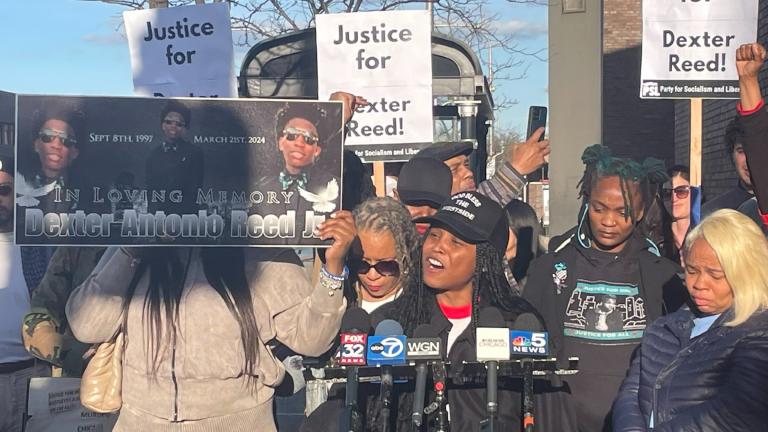Breast cancer is one of the most treatable types of cancer — when detected early. Despite that, it’s the leading cause of cancer deaths among Black women.
According to the American Cancer Society, Black women are 41% more likely to die from breast cancer compared to White women. They are also less likely to be diagnosed and less likely to receive treatment.
Annie Jones understands this all too well as a 23-year, two-time breast cancer survivor, and president of the Sisters Network Chicago Chapter.
“I was diagnosed in 1999, the first time, and the tumor was small and I had a lumpectomy done. And 15 years after that diagnosis, I was diagnosed again in the same breast,” Jones said.
Because Jones was getting regular mammograms due to her first diagnosis, she was able to detect the cancer earlier the second time.
“It gave me the benefit of catching the tumor early enough that it could be treated,” she said.
While the United States Preventive Services Task Force sets the guidelines for women to begin screening for breast cancer at age 50, it used to be lower, which set the standard for how grassroots organizations dealt with advocacy surrounding breast cancer awareness.
“That took all of [our] work and put it on it’s head … it gave [women] an excuse to delay care because their doctors were not advising them, ” said advocate and consultant Teena L. Francois-Blue, who believes the age for mammograms should be lowered.
The Task Force also recommends that women in their 40s talk to their doctor to make individual decisions about screendings.
Since most insurance companies will not cover mammograms until women are of the recommended age, if Black women seek early detection, they often have to pay out of pocket.
“There’s a lot of policy issues at play, that we need to still be mindful of that are very specific to Black women that are important to save our lives,” Francois-Blue added.
Beyond structural issues that can impact a Black woman’s access to early detection, there are also misconceptions about breast cancer, mammograms and chemotherapy.
Dr. June McKoy, professor of medicine at Northwestern University Feinberg School of Medicine, says it begins with mammograms not being a pleasant procedure.
“It is an uncomfortable procedure…,” she said.
McKoy says that some myths about breast cancer came out of true concern, “about the additive overtime effect of radiation to the breast”
“If we can’t dispel this myth that mammography will lead to breast cancer then we’re going to lose more of our own women to breast cancer,” she added.
McKoy, like Jones and Francois-Blue, believes that awareness early detection is key, but as a doctor, she calls for individualized care for every patient, “especially Black women who might be finding lesions early…”
McKoy calls for policy changes as well, to ensure that insurance coverage is available for mammography even when they are not at the age recommended for the test.
“Take us as individuals understanding that breast cancer is something really bad in our population,” McKoy said.








